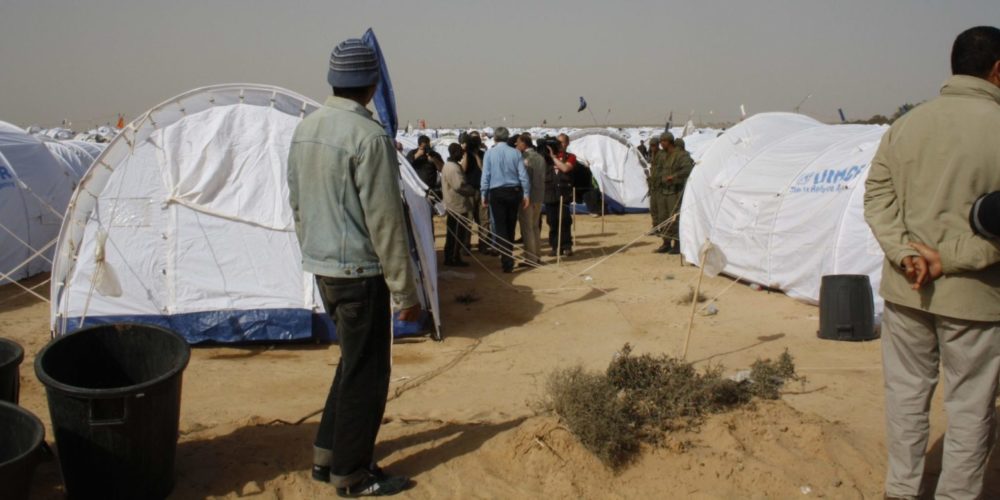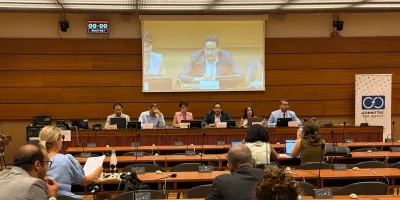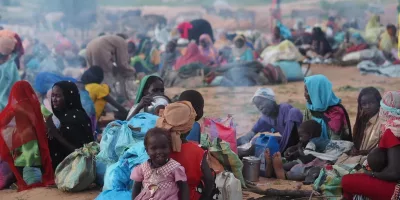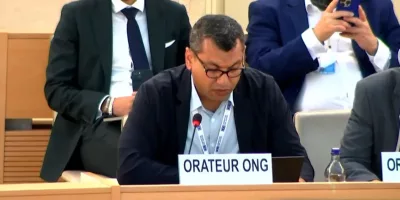News briefing:
Translated and edited by: Committee for Justice
Geneva: December 27, 2021
UN experts have expressed their deep concern about allegations of the collective expulsion of migrants from sub-Saharan Africa, forty-five migrants from Côte d’Ivoire, Guinea, Mali, Cameroon and Senegal, including 20 women, three of them are pregnant and five children under the age of five, from Tunisia to Libya.
Danger to the lives of immigrants:
In a memorandum sent to the governments of Libya and Tunisia, on October 28, 2021, which has not been responded to yet, the experts indicated that this situation endangers the rights of migrants to security, freedom, access to food, shelter, water and medical assistance, which puts their lives at grave risk, amid international concern about reports that these migrants were targeted with racism and xenophobia, which constitutes a violation of the principle of equality and non-discrimination.
Extortion, torture and sexual violence:
The experts quoted the Independent Fact-Finding Mission on Libya that, during their expulsion from Tunisia to Libya, the migrants were reported to have been subjected to various forms of threats and violence and were denied access to their human rights. A sub-group of individuals, including at least two pregnant women, remain stranded on the Libyan border without access to shelter, food, water or medical assistance since 26 September 2021. The migrants are reportedly subjected to various forms of violence such as arbitrary detention, exploitation, extortion, torture, sexual and gender-based violence and human trafficking.
Tunisian expulsion and Libyan kidnapping:
The experts added that some people who tried to return to Tunisia were reported to have been threatened, beaten and pushed by Tunisian National Guard officers to the Libyan side of the border, and a group of about 10 migrants was reported to have been kidnapped by an unknown group of armed men and held in a house on the Libyan side of the border, including at least one child under the age of five.
The experts expressed their deep concern about the dignity, physical integrity and living conditions of migrants, in particular women and children who have been stranded on the border between Tunisia and Libya since 27 September 2021, where they have been subjected to deplorable living conditions without access to shelter, adequate food, drinking water, sanitation or medical care, which may constitute cruel, inhuman or degrading treatment and seriously endanger their life and safety.
UN demands from the governments of Tunisia and Libya:
The experts called on the governments of Libya and Tunisia to provide information on the location and current status of this group of migrants, including women and children, and the measures taken by the two governments to immediately address the living conditions of these migrants, by providing them with food, water, clothing, adequate medical care and shelter.
The experts also called on Libya to provide any information on the location and current status of migrants in its custody, as well as the basis for their detention, and to indicate the measures it has taken to protect the human rights of migrants at international borders, including by ensuring their access to legal representatives and relevant procedures for persons in need of protection under International human rights and refugee law.
The experts also requested information on the measures taken to prevent gender-based violence against women and girls, as well as the prosecution of any such acts, the legal basis for the arrest and detention of such individuals, and how such measures comply with international norms and standards, and the measures taken by the two governments to investigate the kidnapping of migrants and prosecuting and punishing the perpetrators.






